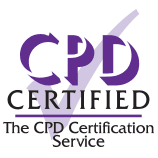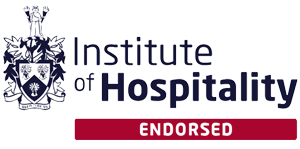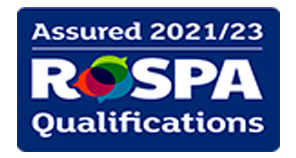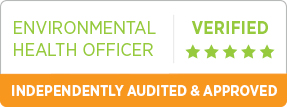
Managers and supervisors belong to food manufacturing industry have very critical role to play in ensuring compliance of food safety standards and regulations, making workers follow food hygiene practices and developing a reliable and sustainable food safety management system. In general, law specifies that all food handlers of various levels should have standard training on food safety, and this Level 3 food safety course is aimed at helping supervisors and managers to enhance their knowledge on their work responsibilities.
The Level 3 course offers learners with interactive practice sessions, expert-made written text and visual content for better understanding and gaining the latest knowledge on food safety compliance principles and practices, prevention of food contamination, how to promote correct practices and food hygiene parameters, knowing food temperature controls, and importance of following HACCP food safety management system.
- Ideal to CIEH and RSPH level 3 syllabus
- Same as REHIS Intermediate Food Hygiene Syllabus
- Meets UK and EU guidelines for food businesses
- Accepted by CPD and Approved by RoSPA
- Fully online course with assessment having no time limits
- Full audio voiceover
- Once completed, certificate will be sent through post the next working day
Who Should Take This Course?
For supervisors and managers in all types of food and drink manufacturing businesses, this Level 3 Supervising Food Safety in manufacturing course is best suited. Workers who are below the hierarchy of managers or supervisors can select this Level 2 Food Hygiene and Safety training course and enhance their career prospects.
According to the Regulation (EC) No 852/2004 on the hygiene of foodstuffs, those who are in food making business should compulsorily get trained in food regulations and hygiene issues with regard to their daily work activities. This Level 3 Supervising Food Safety in Manufacturing training will make sure that all those who are in food making and processing business comply with this law by offering a comprehensive knowledge on food safety management, ways to promote proven safety practices among workers and better implementation of HACCP food safety management system.
Certification



Candidates after their successful completion of the course will be issued a quality assured certificate through the post to their addresses the next working day. The certification can be used for offering evidence for compliance and auditing purposes.
All Level 3 courses have been recognized by the CPD Certification Service which confirms that the course is universally accepted for meeting the Continuous Professional Development (CPD) guidelines.
This food safety course is also approved by the UK-based Royal Society for the Prevention of Accidents (RoSPA) for offering quality and content-approved training..
All our food hygiene courses are similar to the syllabus offered by both the Royal Society for Public Health (RSPH / RIPH) and the Chartered Institute of Environmental Health (CIEH).
Environmental Health Officer Approved
This course has been audited by Environmental Health Officers who also approved the course content. They have done a systematic reviewing of the course material and verified for having necessary inputs for level three training.

The course is divided into fifteen accessible, interactive modules and includes an assessment at the end.
- Introduction to Supervising Food Safety – why food safety is important, who is most at risk, the foods that cause illness, key terms and the role of a supervisor.
- Food Safety Legislation – current legislation, enforcing the law, fines and prosecution, due diligence, food business operator and employee responsibilities and investigating outbreaks of food-borne illness.
- Food Contamination – physical, chemical, microbial and allergenic contamination, cross contamination and detecting contaminants.
- Controlling Contamination – deliveries, food storage, stock control, quarantine, recording and labelling, use by dates, best before dates, packing and distribution, food service and delivery and the role of a supervisor.
- Micro-Organisms, Food Poisoning and Viruses – risks caused by spoilage organisms, bacterial growth (nutrients, moisture, acidity, temperature, time and atmosphere), spoilage microbes, food poisoning, food-borne illness and food-borne viruses.
- Non-Bacterial Food Poisoning – chemical food poisoning, metals, poisonous plants, poisonous fish and mycotoxins.
- Temperature Control – safe temperatures, food deliveries, fridge and freezer temperatures, processing and packing and distribution.
- Checking, Verifying and Recording Temperatures – measuring equipment, air temperature, how to take food temperatures and recording temperature checks.
- Premises and Equipment Design – premises design and layout, suitable workplace materials, lighting and ventilation, utilities, work equipment, fixtures and fittings and food storage areas.
- Waste, Cleaning and Disinfection – storing waste, waste removal, benefits of cleaning, supervising cleaning, six stages of cleaning, cleaning chemicals, cleaning work equipment surfaces and cleaning schedules.
- Pest Control – common pests, rats, mice, cockroaches, controlling pests and supervising pest control.
- Personal Hygiene –supervisor responsibilities, monitoring standards, handwashing, skin infections and wounds, sickness, protective clothing, hair, jewellery and smoking and eating at work.
- Training Staff – why training is important, levels of training, staff induction training, on-going training, staff training records and the role of management.
- Implementing a Food Safety Management System – Choose a HACCP team, describe the products and ingredients, identify the products’ uses and consumers, construct a flow diagram, confirm the flow diagram in the premises, hazard analysis, determine critical control points, establish critical limits, monitor critical control points, establish corrective actions, establish verification procedures and record keeping.
- Food Safety Auditing –product specifications, traceability, product recalls, the role of a supervisor, inspections and audits and auditing the HACCP plan.
- Gain knowledge on food hygiene and importance of safety practices.
- Understand the necessity of food safety legislations and how to comply with it.
- Know different ways the food can be contaminated and how to reduce the risks.
- Have an idea that how bacteria can affect food items and make them unfit for human consumption, and how to control it.
- Have awareness on safe temperatures for freezing, cooking and chilling food and on how to record temperature readings.
- Gain the knowledge on the need for cleaning schedules, managing waste and pest control.
- Understand about the legislations regarding maintaining personal hygiene.
- Know how to implement HACCP food safety management system effectively and recognize the importance of inspection and auditing.
Once you have finished reading all the training material online, you will be eligible to appear for an online assessment test. You will be asked 45 multiple choice questions for which the pass mark will be 80%. You can mark the answers instantly and you will be known your results immediately whether you have secured the pass mark.

